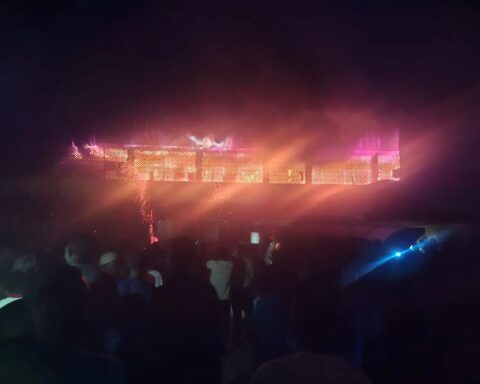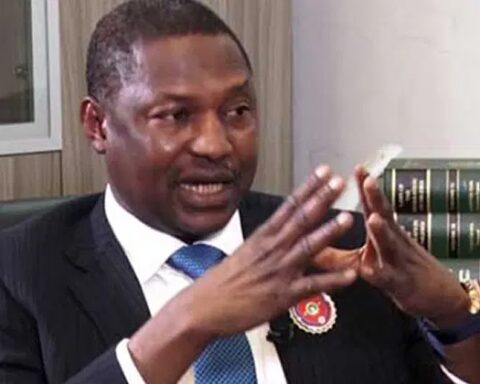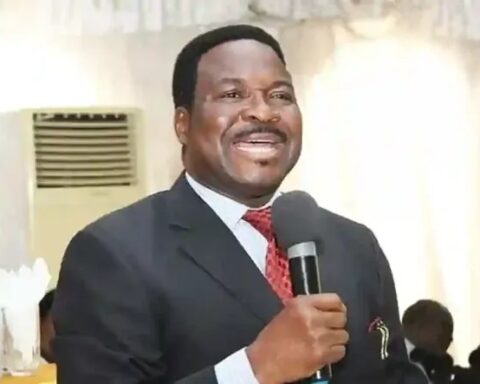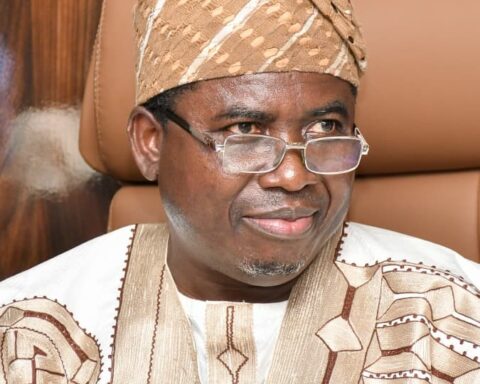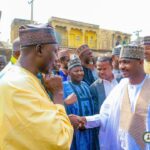In a rare, celebratory interview with Daily Trust marking his 90th birthday, General Yakubu Gowon, Nigeria’s former military head of state, revisited his tenure and Nigeria’s civil war era. Conducted by journalists Andrew Agbese and Isiaka Wakili, the discussion covered Gowon’s perception of his role in Nigeria’s unity, his reflections on the Biafran war, and his leadership legacy. However, a comprehensive open letter has since surfaced, disputing Gowon’s historical accounts and challenging his views on major decisions during his administration, including the handling of the 1967–1970 civil war, often called the Biafran War.
The author of the open letter, Chuks Iloegbunam, the author of Ironsi: Nigeria, The Army, Power And Politics,delivers a point-by-point critique of Gowon’s recent statements, focusing on Gowon’s portrayal of himself as an unwavering advocate of national unity. The letter highlights a broadcast on August 1, 1966, in which Gowon allegedly contemplated secession by establishing a “Republic of Northern Nigeria.” It cites multiple sources, including British government archives and A.H.M. Kirk-Greene’s Crisis and Conflict in Nigeria: A Documentary Sourcebook, which documents Gowon’s 1966 broadcast and subsequent counsel from British and American officials to remain with Nigeria. The letter alleges that Gowon was on the brink of secession before external diplomatic interventions.
Civil War Controversy
Gowon’s recent statement that his administration upheld the Geneva Conventions during the Biafran War has also drawn intense scrutiny. The letter rebukes Gowon’s claims, alleging numerous human rights violations and genocidal acts committed under his watch. It lists a series of documented air raids, purportedly targeting Biafran civilians and infrastructure, and cites international news agencies like The New York Times, Reuters, and Agence France-Presse, who documented multiple incidents of civilian bombings. The letter suggests that these attacks contributed to an estimated 1–3 million Biafran casualties, including widespread starvation from a blockade on Biafran territory.
This accusation challenges Gowon’s assertion that he fought the war under humanitarian principles, particularly his “Three Rs” post-war policies — Reconciliation, Rehabilitation, and Reintegration — which he touted as hallmarks of his administration. However, the letter calls these policies “sloganeering,” pointing to the long-term socio-economic impacts and the infamous policy that restricted former Biafran bank account holders to a mere £20, irrespective of pre-war holdings.
Abandoned Properties and Economic Policies
Among the most controversial subjects was Gowon’s policy on Igbo-owned properties seized in Port Harcourt, which the letter claims stifled Igbo reintegration and economic recovery post-war. The author asserts that the Gowon administration showed a clear pattern of punitive measures that economically marginalized the region. They further question his claims of establishing key infrastructure in Eastern Nigeria, including petrochemical plants and manufacturing facilities in Enugu, describing them as “historical fabrications.”
Gowon’s Military Role and the January 1966 Coup
Gowon’s role in suppressing the January 1966 coup, according to the letter, has been embellished in subsequent narratives. The letter offers detailed accounts from other military personnel, including Colonel Hilary Njoku and Captain Hans Anagho, both of whom reportedly spearheaded the loyalist response. It asserts that Gowon’s claims of “crushing” the coup have overshadowed contributions from others who directly engaged in those operations, challenging Gowon’s purported central role.
The Aburi Accord and Allegations of Betrayal
Gowon’s response to questions about the Aburi Accord, a peace agreement with Colonel Chukwuemeka Odumegwu Ojukwu, who led the secessionist Biafran forces, is also dissected in the letter. Gowon attributed the failure to uphold the Aburi Accord to Ojukwu’s insistence on a confederation model that the federal government considered impractical. However, the letter argues that Gowon’s government, which initially accepted the agreement, ultimately deviated from it and imposed a more centralized governance structure that spurred Biafran secession.
The letter suggests that Gowon’s account presents selective and revisionist history, branding his claims as “fictional quagmire” and calling for public access to verified historical records. It urges Gowon to reconsider his stance on certain events and offers examples of former world leaders who have publicly acknowledged missteps during their administrations. The letter concludes by urging Gowon to “know the truth,” referencing a Bible passage, John 8:32, as a call for introspection.
This sharp and provocative letter has ignited a renewed debate among historians, scholars, and the public over Nigeria’s civil war history, the long-lasting impact of Gowon’s policies, and the role historical narratives play in shaping Nigeria’s identity.

